










Mississippi teenagers’ advice to media, candidates, leaders and schools
Summer -Fall 2024
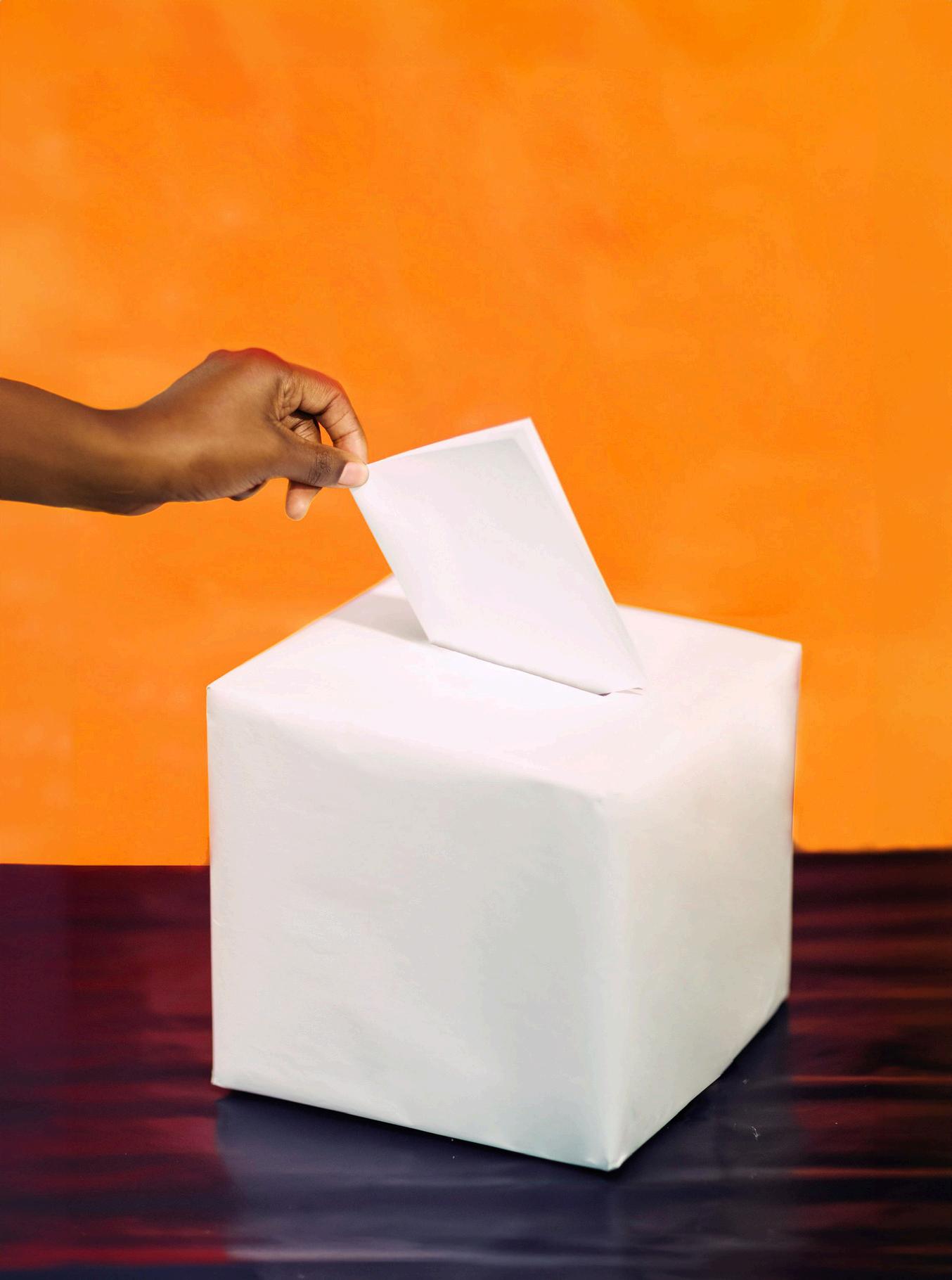





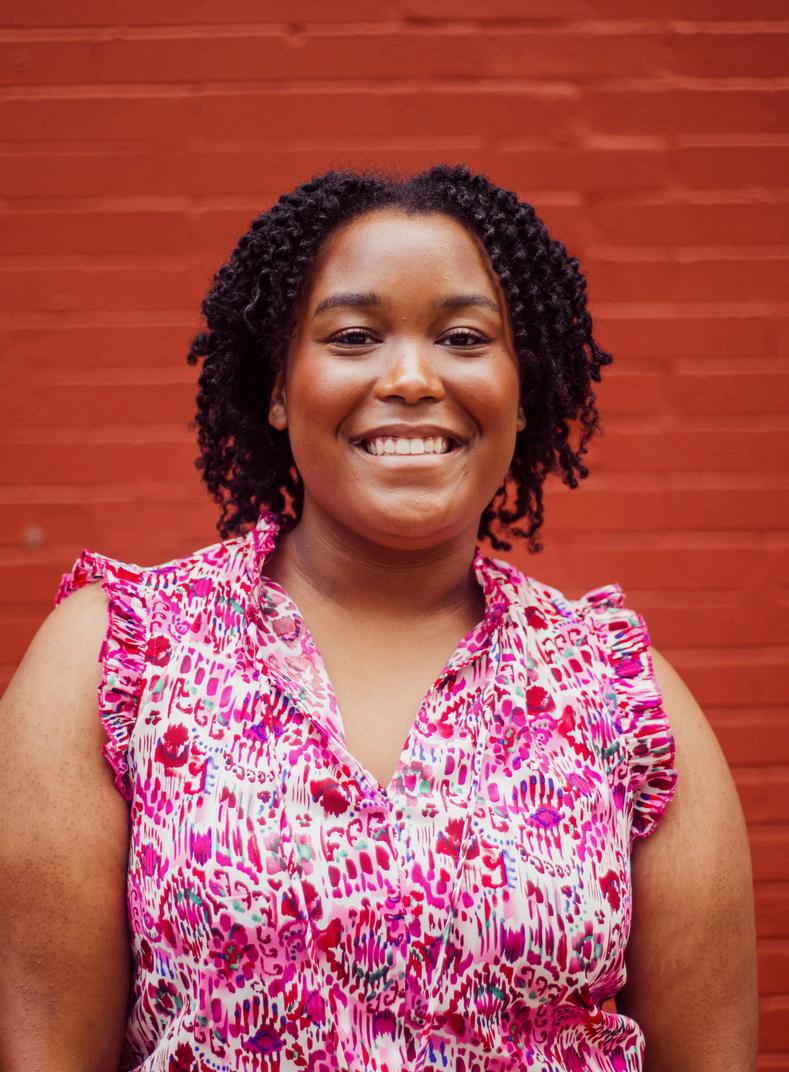


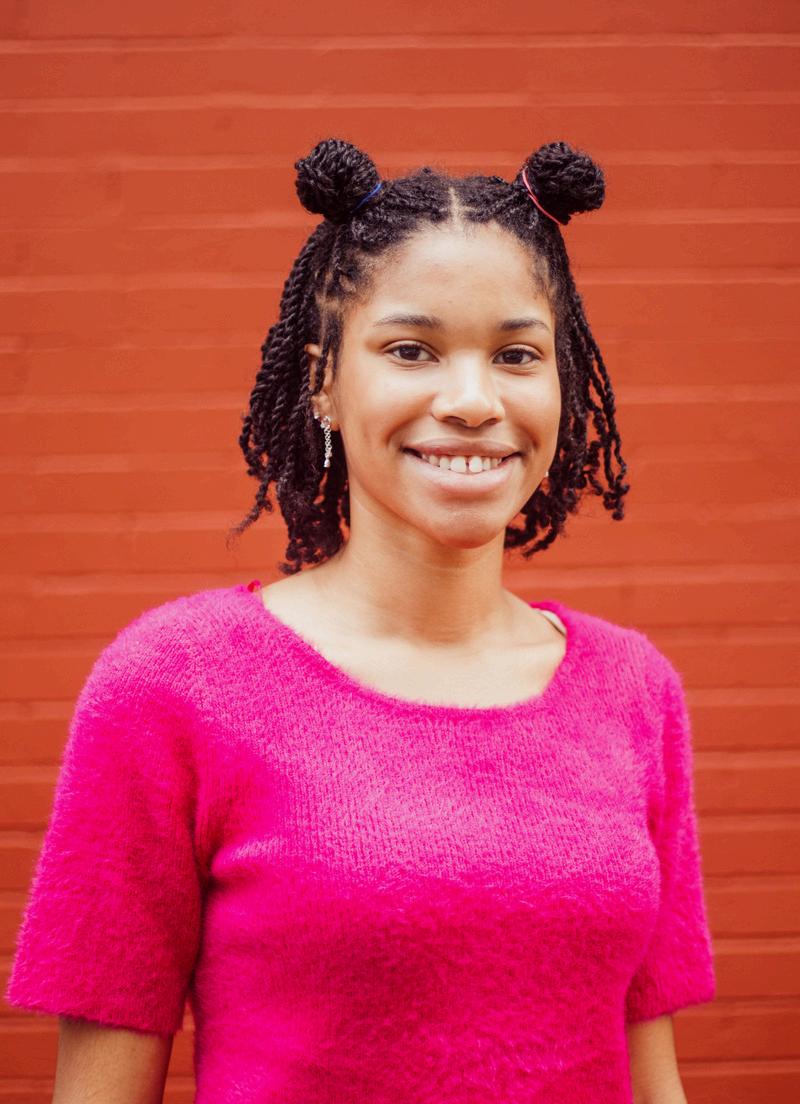
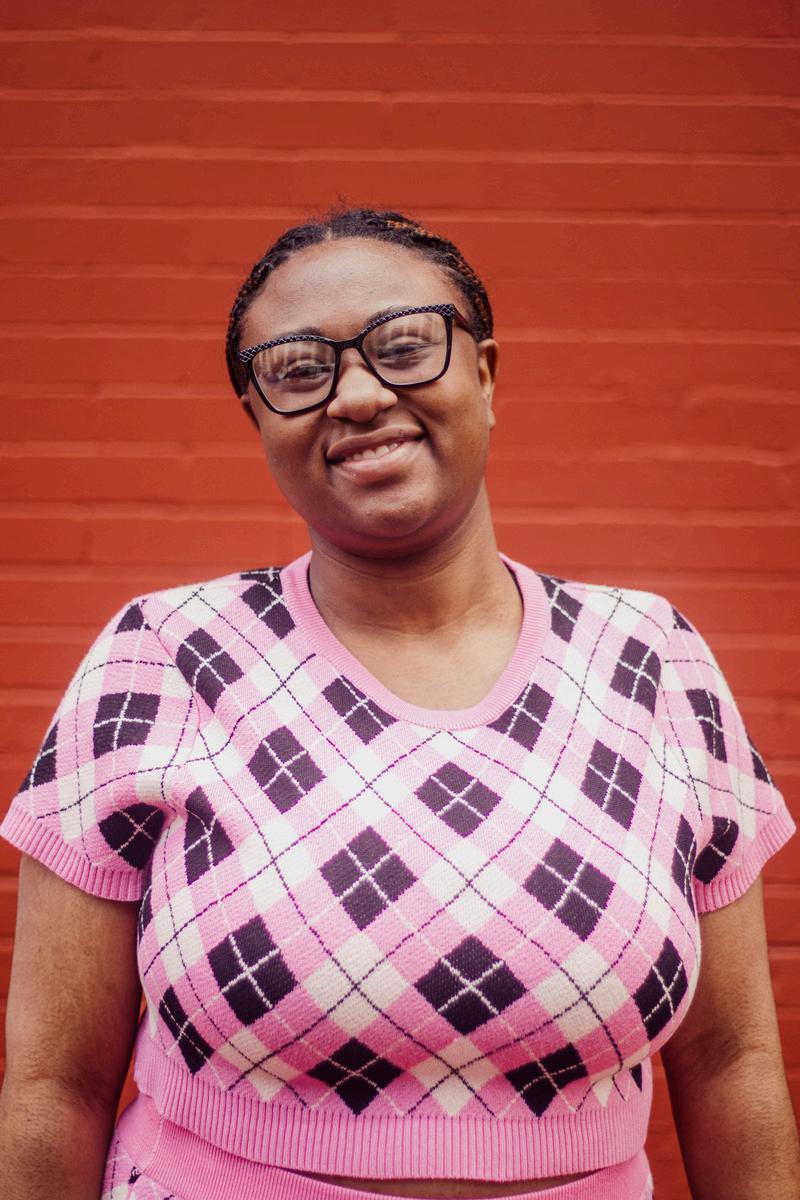

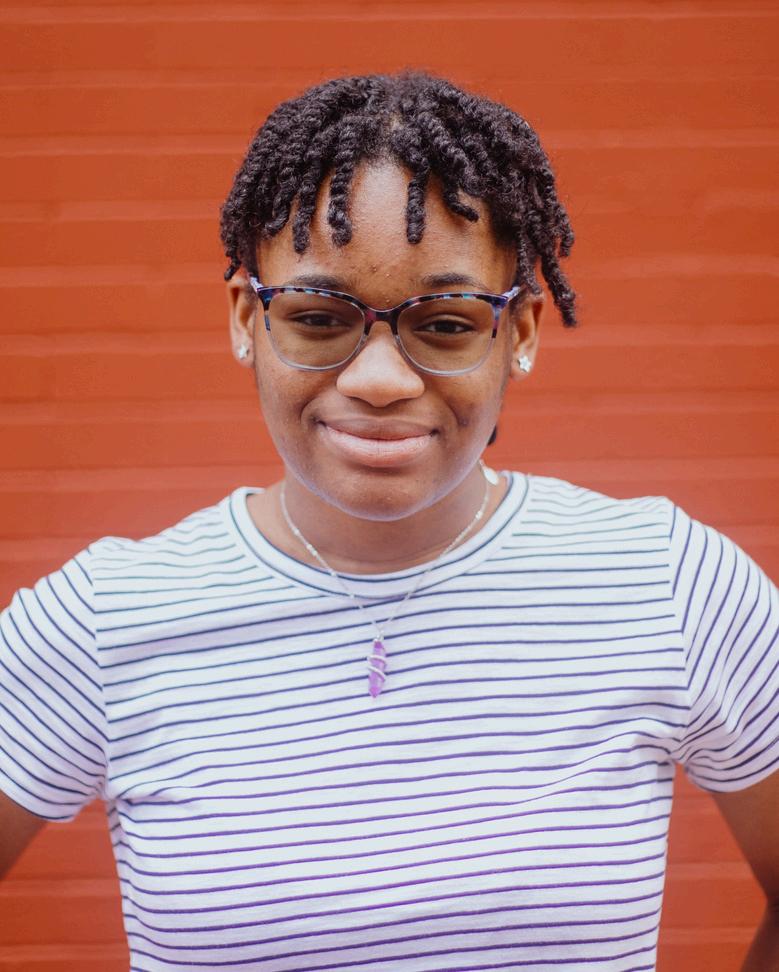

Summer 2025 Intrest Form

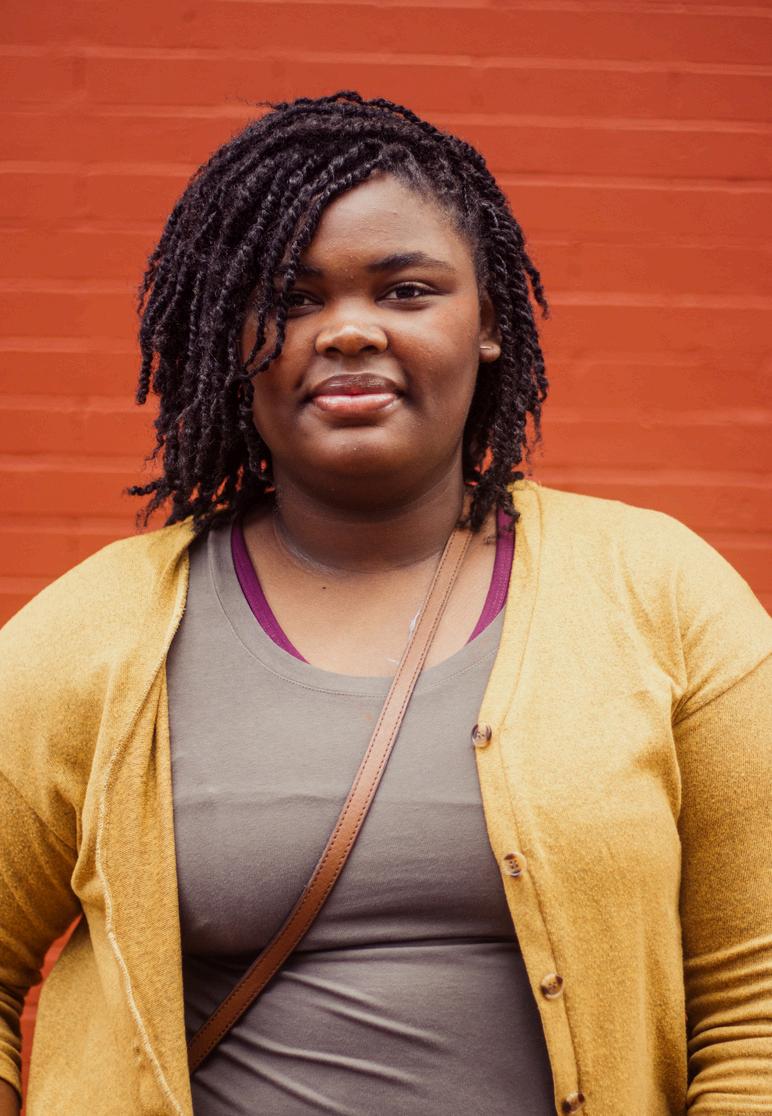




* Second-year YMP student mentor
By Zaniyah Clayborne

JACKSON, Miss. In recent years, election coverage of how to engage with and cover election issues that matter to young Americans has emerged as a crucial aspect of modern journalism. As younger people have become increasingly influential in politics due to their interest in issues such as global warming, abortion rights and the war in Gaza, understanding and addressing their views on politics is important but much media coverage ignores us or assumes they know what we care about
This summer at the Mississippi Youth Media Project, student journalists worked on a variety of articles, all dealing with election coverage. Three groups identified different issues vital to young voters to collaborate on, and each student completed individual coverage about the electoral process, from media coverage to civic education, and how it fails young people.
The students interviewed voters of all ages as well as important present, past and hopeful officials, including retired Rep. Alyce Clarke, former Gov. Phil Bryant, U.S. Senate hopeful Ty Pinkins and state Sen. Bradford Blackmon. This mix of interviews sought real information and deeper thought than the usual political sound bites and helped the student journalists to produce stories that are not typical election fare that, we hope, lead to a deeper discussion in other newsrooms about how to deepen and widen coverage beyond the 2024 elections, regardless of the outcome.
2 Students
3 The More We Learned, The More We Cared: How YMP Teenagers Analyzed Election Coverage
6 March to Equality: Alyce Clarke’s Fight for Women’s Rights and Voting in Mississippi
7 With Much on the Line, the U S Latino Vote Can Tip the Scale
8 Education Is Key to Motivating Young People to Vote
9 Opinion: Trump Can Run With 34 Felonies, But Many Mississippians Cannot Vote
10 From Partisanship to Gridlock: Why Legislation Gets Stuck, Rejected
11 Media Manipulation: How the Media Change Voters’ Perspectives
11 ‘Tears of Joy and Pride’: Don’t Be Discouraged, #MakeVotingATrend
12 Studying Civics Educates on Voting Process, Importance
13 YMP + MFP + Public Brainstorm Solutions for Voting, Election Coverage
15 Solution: Be Serious About Voting
16 Staff + What Is YMP?
We Collaborated Across Generations
Many YMP participants did not start here in early June already interested in politics or believing that our voices mattered much around elections But we all now agree that youth engagement in elections helps keep both young people and the adults around us informed about different aspects of the election and creates an upcoming pipeline of enthusiastic voters. Our newsroom conversations confirmed that many if not most young people grow up without proper voter or civic education in schools.
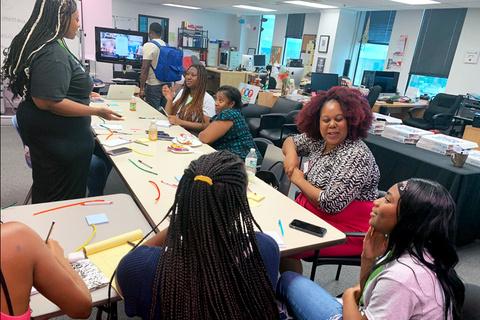
On the evening of June 27, 2024, Youth Media Project students participated in a think-tank dialogue with community members in the newsroom to discuss election concerns identified in earlier Mississippi Free Press solutions circles and together brainstorm solutions
A survey by the Center for Information and Research on Civic Learning and Engagement found that young people who have voter education in school grow up to be more informed and involved voters “Informed voters make informed choices,” La’Ziyah Walker, a second-year 2024 YMP student-mentor, said
We didn’t go on this journey alone. Mississippi Free Press mentors invited us to participate and help lead solutions circles about election coverage during the summer and during the fall for four virtual and physical election circles. We also joined with MFP journalists and community members in our newsroom to discuss how the media could better cover elections, filling many large stickies with ideas across those dialogues and followup ideas. They then go back to a larger circle to decide if more discussion, be reported on or considered for other actions.
We then used the outcomes and ideas to inspire and deepen our own stories that are published at our journalism site, jxnpulse com, as well as excerpts in this digital “Reimagining Elections” flipbook to be shared on social media and with journalists across the U.S. We hope it helps other media outlets as they plan future coverage.
Engaging young people in elections helps to close the gap between generations. The most recent census showed that voters aged 18 to 29 have had higher election turn-out in recent years, though they still lagged behind the older generation In 2016, around 46% of young voters in that age group showed up to the polls, and 2020 saw an 11-point increase from that already-high margin
But young people just don’t see or share a lot of election coverage. “News isn’t always properly shown on the platforms that I use,” said Paris Braggs, a second-year 2024 YMP studentmentor.
“We get a lot of our information about electionrelated topics on social apps, like TikTok and Instagram,” University of Mississippi student Whitney Jones told me. “Young people aren’t always drawn to watch the news on tv, especially since most people prefer to stream rather than watch cable ”
continued next page
continued from previous page
The students at YMP are trying to do what they can to change election coverage for young voters and not just those who are voting this year Even though most of the YMP students are not yet old enough to vote, they understand that the people who get elected have the power to make major changes in the daily lives of citizens. They also now fully realize how important it is to create a pipeline of future voters sooner than later and even if they’re not old enough to vote yet, they may inspire their family members to turn out.
The main goal of our summer circles and thinktank was to imagine solutions about how the media can better cover the election for everybody, but especially younger and will-be voters. Some of the solutions included adding in a personal element to the story and telling the news accurately and objectively rather than through sensational sound bites that lead to stereotypes such as painting Black people and immigrants as criminals or Black-led cities like Jackson as bad places to live.
Murrah High School graduate and incoming Jackson State freshman Hart Jefferson, 18, led the first student solution circle and is co-lead of MFP solution circles across Mississippi The students split into groups and identified problems that need solutions like how Mississippi can have better infrastructure, more youth activities and better education. We then talked about potential solutions of the kind that the media could also ask candidates about rather than the same questions over and over again.
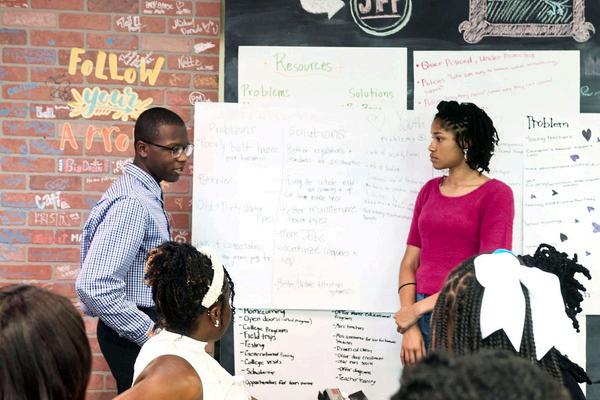
A personal element, such as a narrative story about a specific person as you’ll see, “lead” most of our stories and gives readers something to hook on to. “Sometimes facts and stats aren’t fun to read,” Braggs said. “Having the personal element helps keep me interested.”
“Lots of news that I read and watch is favoring one side over the other,” said second-year YMP student mentor Laila Henderson. Many people are looking for the whole story to be told and without always being divided into two opposing sides, which helps readers and watchers make decisions on their own
“Having those kinds of conversations helped us figure out what our individual projects were going to be,” said Ferrari Shakespeare, a 2024 YMP student journalist.
YMP’s work and joint circles also helped the Mississippi Free Press plan its own 2024 election coverage
The solution-circle experience was inspiring. “It opened my mind to the range of problems that are apparent in Mississippi, and I think that we as the youth can help create the change,” YMP student journalist Kirstyn Lyles said.
M RElection Summer

By Ferrari Shakespeare
When Alyce Clarke, now 85, was a little girl growing up in Yazoo City, Miss , women still needed their husband’s signature to have a credit card There were also no female legislators, and the Mississippi Legislature was debating whether men should be paid more than women for performing the same work When she got out of high school, Clarke became a teacher and spent 37 years in the classroom. After being elected to the Mississippi House of Representatives in 1985, she departed the field of education, but her legislation continued to have an impact on public schools.
While working as a representative, Clarke experienced a lot of mistreatment and racism. After Clarke had spent four years in the Capitol, the Mississippi Gulf Coast elected Diane Peranich. After Peranich’s election, then-House Speaker C.B. “Buddie” Newman sent Peranich her own key to the bathroom a perk that Clarke had never received.
“I was there for four years, and they never gave me a key, and all the years I had been there, the door was always locked. They had a bathroom for white women that I never knew about,” Clarke recalled in an interview in her Jackson home with the Youth Media Project. “I called the media and told them about what I learned.”
The next day, Newman had a key to the bathroom sent to Clarke She told the security person who delivered the key that she didn’t need it, and he relayed the message to the speaker When she responded to a later summons for a meeting with Newman, he asked her why she wouldn’t accept the key
Using her voice early meant that Clarke would use her position to help Mississippians. As the first Black woman to be elected to the Mississippi Legislature she established the Born Free program, a treatment center for pregnant women struggling with addiction. This aimed to ensure the health of both mothers and unborn children by providing essential support.
Read full story about Alyce Clark here.

Darlyn Bustillo, a 2024 graduate of Ridgeland High School, plans to attend the University of Mississippi in the fall. The daughter of an immigrant wants to become an immigration lawyer. Photo by Taylor Brandon
“There is not a lot of emphasis on young people voting, and many of them feel like their votes don’t matter Many teens are discouraged from voting because many things are not taken as seriously in our generation and often made into a joke. Voting should be stressed in a more serious tone within popular outlets that many teens use. Social media outlets, schools, influencers could be used more to put emphasis on voting,” Henderson said. “If someone lives in a state that is dominated by one party, people may feel like their vote on issues such as abortion and healthcare doesn’t matter. When people feel as if their vote will not significantly affect change, they are less likely to participate in civil action.
Laila Henderson in “From Partisanship to Gridlock: Why Legislation Gets Stuck, Rejected
By Caitlyn Russell
Darlyn Bustillo vividly remembers the day when her middle-school social studies teacher organized a mock election. The classroom buzzed with excitement as students lined up to cast their votes. She was excited to use her voice; it felt new and optimistic.
Four years later, Bustillo reflects on that mock election as she prepares to vote in the 2024 presidential election. The stakes feel higher than ever to her, and the political climate is charged with nervousness and questions. For Bustillo, this election is particularly impactful because it highlights the growing influence of Latino voters in the United States.
Recent census data indicate that 3.28% of people in Mississippi are Latino. Latinos now make up nearly 19% of the U.S. population, and their voter turnout has been steadily increasing. In the 2022 presidential election, a record 16.6 million Latinos cast their ballots, a number that is expected to be even higher this year.
Pew Research statistics show that 36.2. million Latinos are registered to vote this year. The Latino electorate tends to have diverse political views, making them a critical and dynamic voting bloc Data from the Pew Research Center indicate that while a significant portion of Latino voters lean toward the Democratic Party, a considerable segment supports Republican candidates
As she prepares to cast her first vote, Bustillo feels a deep sense of pride and responsibility, knowing that her vote is a testament to the hard work and perseverance of countless individuals who have fought for the right to be heard This year, she is not just voting for herself she is voting for her community, for her future and for the belief that every voice matters
By Hannah Evans

With the 2024 presidential election approaching, many people have a common idea: they’re not voting
The voter turnout rate has increased, with the 2020 presidential election having the highest voter turnout since 1990. Mississippi saw a small increase in its number of active voters, too, with more than 300 new voters casting ballots in the race. Despite these increases, many people could still look at the two candidates and not want to vote for either candidate so they may choose not to vote at all.
Many people don’t understand how national or local elections work due to the lack of civic education in high schools, meaning that Mississippians who become eligible to vote on their 18th birthdays might not understand how to fill out a voting ballot, the registration process or when and where to vote
It’s not uncommon for older people to talk about how they participated in mock elections back when they were in school which most summer 2024 YMP students have never had a chance to participate in.
Back in 1992, the Clarion-Ledger reported that more than 50,000 Mississippi students had voted in a National Mock Election (with Bill Clinton leading statewide over George W Bush and Ross Perot among high-school students) The same year, 69 high schools and more than 250 students, mostly in Jackson metro schools, attended a mock election rally in Brandon.
In 1996, then-Secretary of State Eric Clark traveled to high schools across the state to lobby students to participate in Promote the Vote activities, including mock elections, drawing more than 150,000 students in 300 Mississippi schools to sign up to be involved. “Voting is crucial to democracy” despite who they voted for, Clark told students across Mississippi.
Read Hannah Evans’ full story at jxnpulse com

By Kaitlyn Poole
Taking a person's voting rights after they've been released from incarceration is basically like a double jeopardy,” Joseph Holiday said in an interview with the Youth Media Project. “Because I've served the time, I've met all the requirements to come back into society. I'm a working-class citizen, I pay taxes like everyone else, I'm doing everything that's required of every other citizen to do but still I don't have the opportunity of the right to vote ”
Imagine people who look like you and have fought for your right to vote but because of a mistake years ago, it is all taken away. For millions of people in the United States, those rights are tripped away due to a felony conviction, creating an often-overlooked injustice.
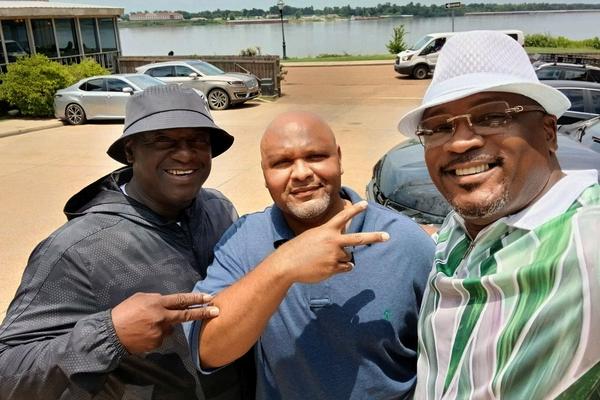
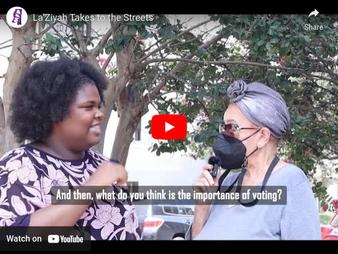
Mississippi has the third-highest number of Black citizens who are denied the right to vote: 130,500 Black Mississippians or 16% of that voting-age population are unable to exercise their right to vote.
Other states have reformed laws that kept felons from voting, including Florida, Virginia, Kentucky and Iowa In 2018, Florida approved Amendment 4, excluding those convicted of murder or sexual offenses.
When felons are disenfranchised, it doesn't just affect individuals, but it impacts their families and communities. Children of disenfranchised parents may grow up feeling disconnected from the political process, creating a cycle of disengagement and disenfranchisement.
Read Kaitlyn Poole’s full opinion piece at jxnpulse.com.
By Laila Henderson
Stopping hair-based discrimination by employers and school administrators was the goal of Mississippi Rep. Lataisha Jackson’s House Bill 687 that the Como, Miss., resident introduced in the Mississippi Legislature on Jan. 29, 2024. Twenty-nine of the 41 Democratic House representatives sponsoring the “Crown Act” alongside one Republican. It then died in committee on March 3.
Two-time YMP student journalist Laila Henderson used the legislation as an example of legislation doomed to fail because it would mostly affect Black people in a politically and racially divided state.
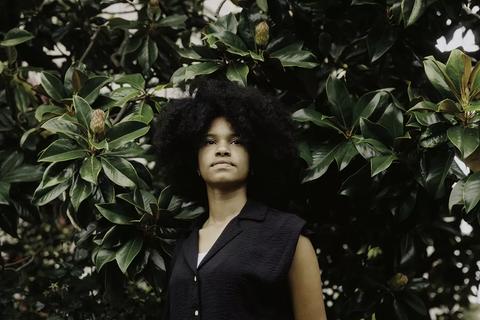
YMPGlossary: “Mississippiisit.” —Havingthementality thatMississippideserves bettertreatmentby electedofficialsrather thanjustacceptingit.
“It's harder and harder to make policy because there's so much deep-seated disagreement, but not just disagreement, distrust and dislike (for) each other,” politics professor Nathan Shrader told her. “In the old days Republicans, Democrats, conservatives and liberals–they didn’t get along, but they didn’t hate each other, necessarily. Today, it feels like they vehemently hate each other not politically but personally.”
A former Mississippi governor on one side of the political divide also weighed in. “(The media) has been a part of political discourse since the very beginning,” Gov. Phil Bryant said. “What is failing us now is (that) much of the media simply lies.”
The media is not the only cause of polarization, however Political parties have become more racially diverse, as Black and Brown candidates are receiving more seats in the House and Senate Though diversity is not a bad thing, it may be the reason for the influx of differing viewpoints, Henderson wrote.
Read Laila Henderson’s full piece at jxnpulse.com.

By Taylor Brandon
Although Americans vote by secret ballot, the media play a huge role in who voters might select once the ballots are put into their hands.
“Photos and edited video clips can be a key sign of manipulated content,” WJTV News reporter Kayla Thompson said in an interview. “For example, there is a clip of President Biden skipping over a Black girl in line at an event and didn’t shake her hand, but he actually did shake her hand first and came back again and shook her hand at the event when the full video was released.”
As voters head to the polls, many want to see the most authentic version of the candidates they must choose from “The media can do a better job by focusing on substantive issues rather than sensationalism This means providing in-depth coverage of candidates’ policies, backgrounds and the impacts of their proposed plans,” the candidate said.“It’s essential for the media to present balanced coverage and avoid biased reporting that favors one candidate over another.”
Read Taylor Brandon’s full story here.
‘Tears of Joy and Pride’: Don’t Be Discouraged, #MakeVotingATrend
By McKenzie Matthews
The election of the nation’s first Black president hit home for Joe Brandon He had lived through segregation as a Black engineer for the U S Department of Agriculture, also serving in the military. He never thought he would see a minority American elected as president, let alone an African American man. He was so electrified with emotion that it filled the room and ignited a deep engagement within the family.
The emotional response of her father-in-law is still fresh in Brandon’s mind.
“My father-in-law just cried because he had lived through segregation, you see, and so he never thought that he would see the day that there would be a Black president,” Emily-Nicole Brandon said “Of course, it wasn’t sad, it was tears of joy and pride ”
A Pew Research Center analysis of U.S. Census data showed that voter turnout in the 2016 and 2018 elections declined among young people and Black Americans, two groups who had high turnout rates for Obama’s two terms.
voter turnout has fluctuated over time and can be influenced by various factors, including political engagement, voter suppression and demographic changes.
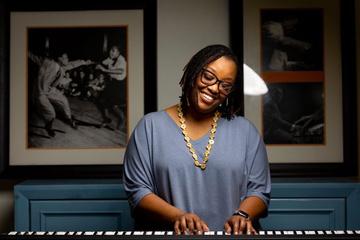
Read McKenzie Matthews’ full story at jxnpulse.com.
strongly about voting rights and recognizes that it’s important to motivate her community to go out and vote.
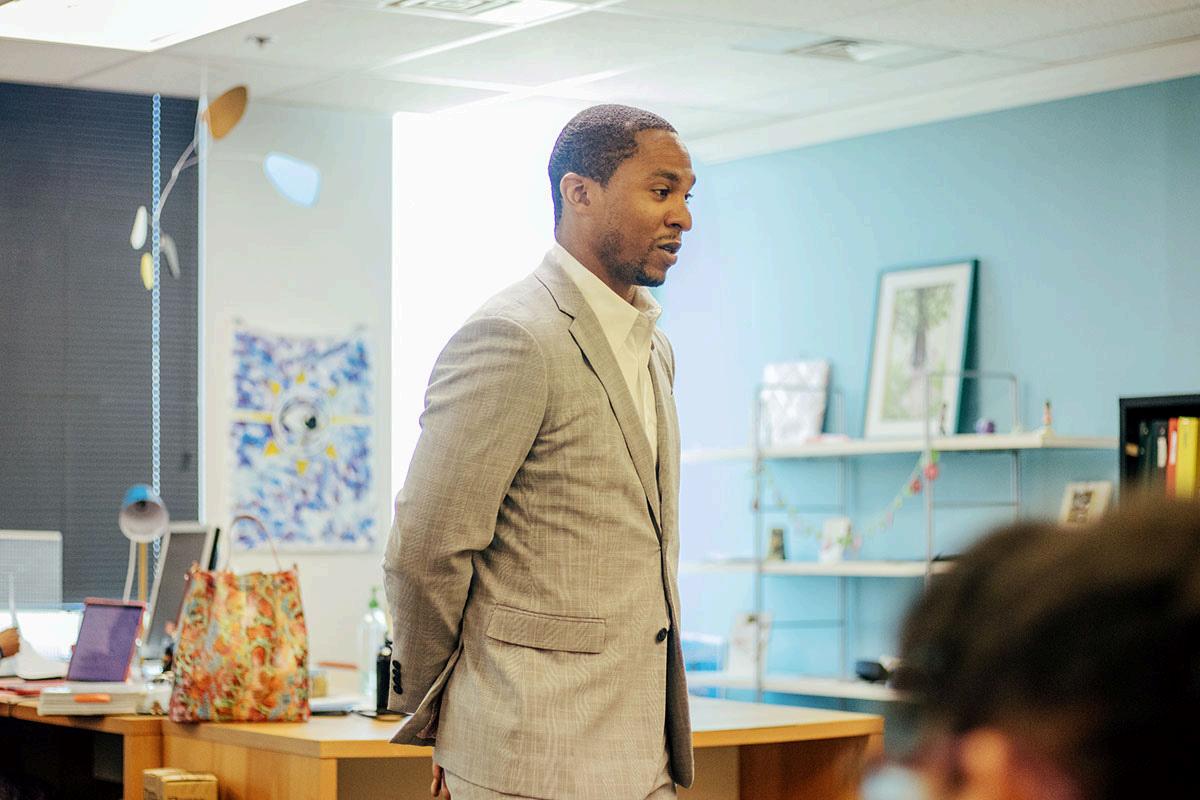
By Kierra Rand
Mississippi State Sen Bradford Blackmon rose to his position without even taking a civics class in high school. Blackmon attended the private and wellregarded St. Andrew’s Episcopal School, which still did not offer a civics class at the time.
After graduating in 2007, he attended the University of Pennsylvania for undergrad and then University of Mississippi for law school. When he took government classes during that time, Blackmon thought to himself: “This is how it works. I wish I had known about this before I got to this point.” After having these experiences, he feels upset about people his own age and people younger and older not being educated on the election and political process
In Mississippi, only 0 5 credits for taking “government” classes are required to graduate from high school. And that is often not from a civics class.
In the lead-up to the 2024 presidential election, some people could be confused, for instance, about which of the three branches of government perform certain functions, with come criticizing the Joe Biden administration for the fall of Roe v. Wade. However, the U.S. Supreme Court, and especially justices appointed by former President Donald Trump, made the decision to overturn Roe vs. Wade, ending reproductive autonomy for many American women.
Voters cannot be blamed for buying into such misinformation, Blackmon said. “It’s not their fault because they were never offered the education,” Blackmon said. “So I don’t blame them for being uninformed. But we just have to find a better way to inform them ”
Read Kierra Rand’s full story at jxnpulse com
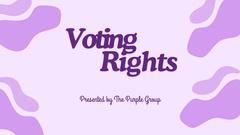
YMP students began summer 2024 brainstorming focus issues across four groups concerns of Mississippians that interested them enough to do journalistic deep dives into the tops. They started with pitch decks across their work groups: Purple, Pink, Green and Red (see covers down left side). Here are summaries of their long-form stories, available at jxnpulse.com.
By Haley Bradford, Kierra Rand, Ferrari Shakespeare, Ava Washington
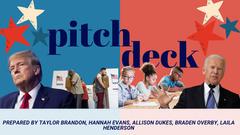
Samantha Cross sat at her desk, studying. All they ever seemed to do in the high-school history class was study and write, study and write. “Will I ever get to express my opinion on this?” Cross asked herself. “All this teacher does is talk. Even though history and politics are discussed in school, it doesn’t mean the student will show interest in it but Cross did. In another class, Cross saw how that teacher engaged with her students: making them get up, having discussions. “This method works,” Cross thought.
Read full long-form piece online here
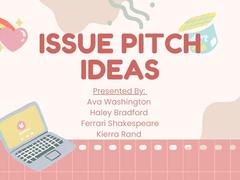
By Taylor Brandon, Allison Dukes, Hannah Evans, Laila Henderson, Braden Overby
By Paris Braggs, Caitlyn Russell, Jeremy Thomas and La’Ziyah Walker
Historical practices like redlining, the systematic denial of loans and other financial services to residents of predominantly Black neighborhoods, have intentionally segregated neighborhoods along racial lines as recently as 2016 in nearby Memphis, Tenn. The denial of the ability to grow wealth, through property values and home ownership, have led to long-lasting systemic economic and social disadvantages that, in turn, weaken voter enthusiasm.
Read full long-form piece online here
By Kirstyn Lyles, Kaitlyn Poole, McKenzie Matthews, Zaniyah Clayborne

During the pandemic, the company began laying off many employees Barnes knew it would not be long before she was let go, so she urgently searched for another job At the time, the federal Child Tax Credit, or CTC, was expanded as part of the American Rescue Plan Act of 2021 to aid parents whose jobs were affected. Before 2021, Barnes would get a tax refund of more than $3,200 for her children at the end of the year. When the CTC was expanded during the pandemic, Barnes began getting monthly payments, allowing her to stay financially afloat.
Rest full long-form piece here.
“I think (men are) meddling with an area that they don’t need to meddle with,” Lyons said “These people are not physicians ” Politicians and government officials in Mississippi have not expanded Medicaid despite efforts to do so, including Rep. Missy McGee’s push for expanded health care . McGee is a Republican state representative from Hattiesburg who introduced the “Postpartum Care Extension Act” (House Bill 413) to extend postpartum Medicaid coverage for new mothers from 60 days to 12 months.
Read full long-form piece here.
Did you know that early Youth Media Project participants, back before the pandemic, were the originators of the community dialogues that the Mississippi Free Press now calls “solutions circles” and hosts around the state and nation? YMP students back then organized and hosted a series of “youth crime forums” using the structure of the current solutions circles, which YMP founder Donna Ladd renamed when she co-founded the MFP in 2022 with the dialogues as a core engagement and reporting tool.
Solutions circles and “think tanks” in our newsroom with community members and MFP team members were key to this summer’s YMP class focused on elections coverage Thanks to a grant from the American Press Institute’s 2024 Election Coverage and Community Listening Fund, we helped lead and participated in several circle conversations. MFP Solutions Circles coleads Ryan Perry and Hart Jefferson, both alums of past YMP programs, helped train and lead us in these inspiring conversations where we brought the perspective of Mississippi teenagers into the room with concerned adults and professional journalists.
Our election discussions focused on:
Access to Voting 1. Problems:
Felons cannot vote
Limited mail-in options/complicated process
Accurate listing of polling locations
Last-minute precinct changes
Rural voter transportation problems
Distrust of media reporting
Misinformation in the media
Young voters’ lack of voter education
Voter suppression
Precincts moving at last minute
Difficult legal jargon
Quality of information
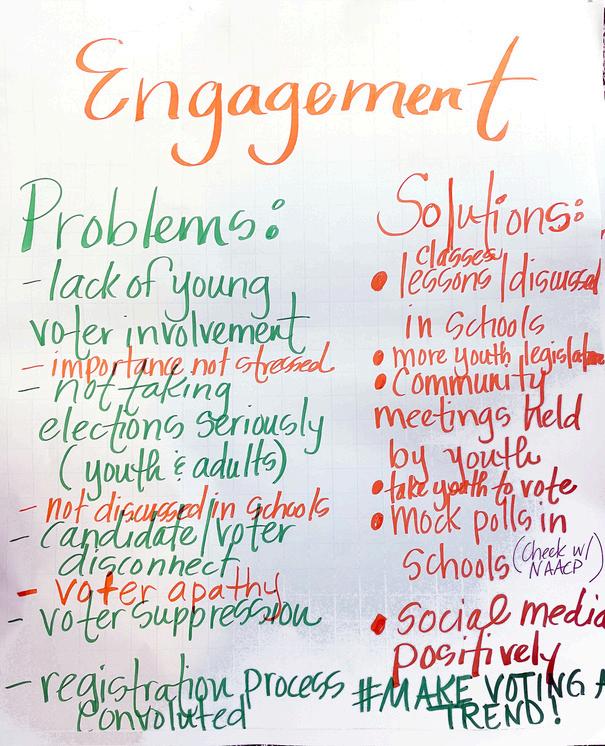
2. Engagement in Voting Problems:
MFP education reporter Torsheta Jackson (standing) joins a MFP-YMP election-coverage solutions circle in July 2024 alongside YMP students Ferrari Shakespeare (left), Hannah Evans and McKenzie Matthews; and MFP columnist Roger Amos (in glasses), a member of the Mississippi Band of Choctaw Indians

Solutions:
Universal voter registration at age18
Universal early voting
Voter education guide
Adults taking young people to vote
Teaching about voting process, civics
More mock elections
More access to mail-in voting
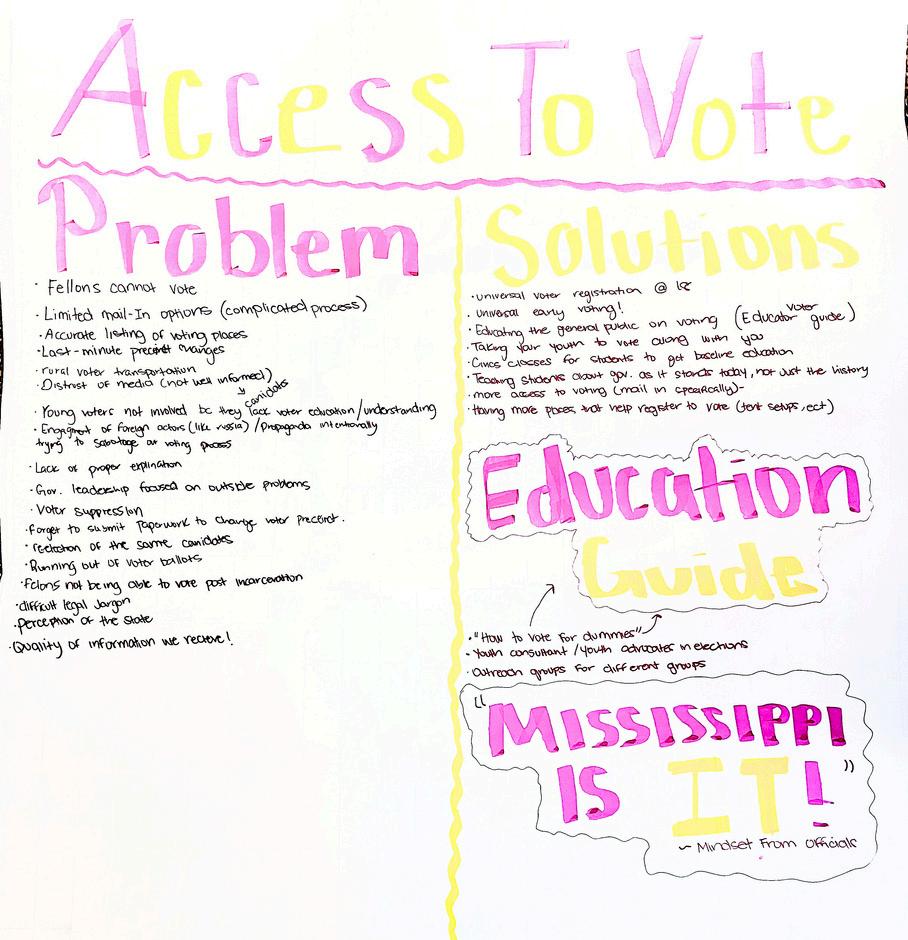
More polling places
Lack of young voter involvement
Importance of voting not stressed
Not taking elections seriously
Not discussed in schools
Candidate/voter disconnect
Voter apathy
Voter suppression
Registration process convoluted
Generational gap in discussion, issues, engagement
Solutions:
Voter education in schools
More youth legislation
Community meetings by the youth
Mock elections in schools
Cocial media around voting
#makevotingatrend
Allow children to hear from adults
about their voter experience
3. Information in voting:
Problems:
Lack of good internet access in rural areas
Interest level too low; too many think usual news is boring
Mississippians less invested in or connected to national conversations
Disinformation and misinformation
Solutions:
Broadband as a priority
Write with more engaging narrative with peoplefocused stories
Personal narrative through web demonstrations
Media literacy in schools
“How does this affect me?”
YMP-involved Solutions Circles found that young people do not believe media report what is relevant, or engaging, to them
“Objectivity needs to be more fair.”
YMP students don’t want false equivalency between a fact and a lie but they also want their communities to be covered with actual objectivity. Example: Mississippi experiences crime everywhere, not just in majority-Black Jackson. And many violent gang members here are white but much media coverage doesn’t reflect those facts, which hurts people here
YMP students Paris Braggs (left) and Jeremy Thomas “pass” the solutions-circle talking stick to Mississippi Free Press Publisher Kimberly Griffin during a joint dialogue about election issues. Photo by Donna Ladd

Solutions:
Acknowledge, engage multiple perspectives/sources
Interview in marginalized communities
First responders to be quick
Report fully
Question both sides
Honesty/no bias
Uphold journalism ethics 1.
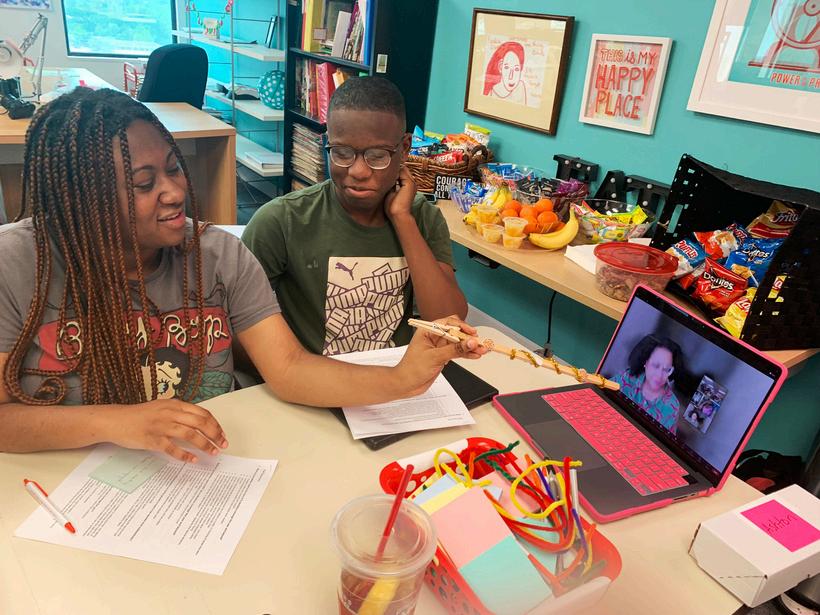
Fact-check misinformation and disinformation 2.
Focus on facts over political entertainment 3.
Guard against hate speech from candidates 4.
5
Don’t let candidate confrontation and outbursts dominate news
Check self, story, sources for bias 6
Report fairly and justly 7
8
9
Be mindful of language and tone
Seek real conversations with elected officials
Report on useful voter information, such as precinct changes 10.
Don’t focus on sensationalized news and headlines 11.
Report issues that affect lives, not the horse race 12.











“There is not a lot of emphasis on young people voting, and many of them feel like their votes don’t matter. Many teens are discouraged from voting because many things are not taken as seriously in our generation and often made into a joke Voting should be stressed in a more serious tone within popular outlets that many teens use Social media outlets, schools, influencers could be used more to put emphasis on voting. If someone lives in a state that is dominated by one party, people may feel like their vote on issues such as abortion and healthcare doesn’t matter. When people feel as if their vote will not significantly effect change, they are less likely to participate in civil action.”
Laila Henderson, Youth Media Project ’23, ’24
YMP Election Coverage: Read These Stories, More: Meet the Candidates for U.S. House in Mississippi’s Nov. 5 Elections
Opinion | The Power of Our Voice: Why Black Men Must Vote on Nov 5. Mississippi Counties Change Voting Precincts, But Incorrect Information May Send Voters to the Wrong Place on Election Day
All Mississippi Polling Places for the 2024 Elections
Court Says Mississippi Can’t Count Late Mail Ballots But Ruling Doesn’t Affect Nov. 5 Vote
Election Summer

MFP CEO & Editor Donna Ladd founded YMP in 2016 as a W.K. Kellogg Fellow. She is YMP project director Donna Ladd
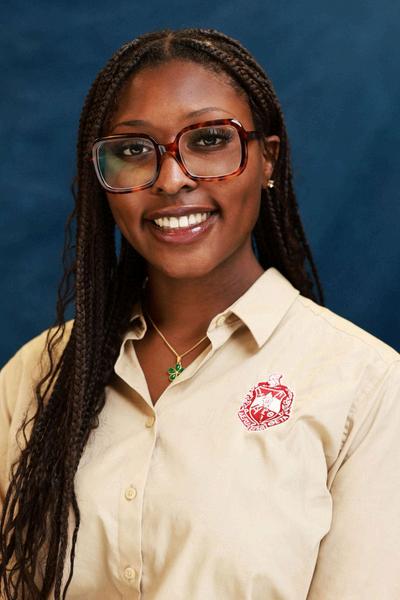
YMP Assistant Director

Imani Khayyam is photo editor at the MFP and YMP photography mentor Imani Khayyim

YMP Editor Taylor Hathorn is the assistant registrar at Millsaps College and edits for Mississippi Free Press. Taylor Hathorn,
YMP Editorial Programming Coordinator Kiden-Aloyse Smith is MFP’s editorial assistant and special projects oordinator Kiden-Aloyse Smith
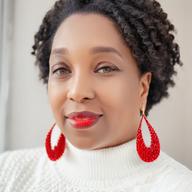
YMP mentor Torsheta Jackson is the education equity reporter at MFP and a previous teacher Torsheta Jackson

MFP Creative Director
Kristin Brenemen oversees the YMP website and created this year’s flipbook Kristin Brenemen
Ryan Perry Hart Jefferson
YMP Mentor Hart Jefferson, was a 2023 project participant He is a freshman political-science major at Jackson State University
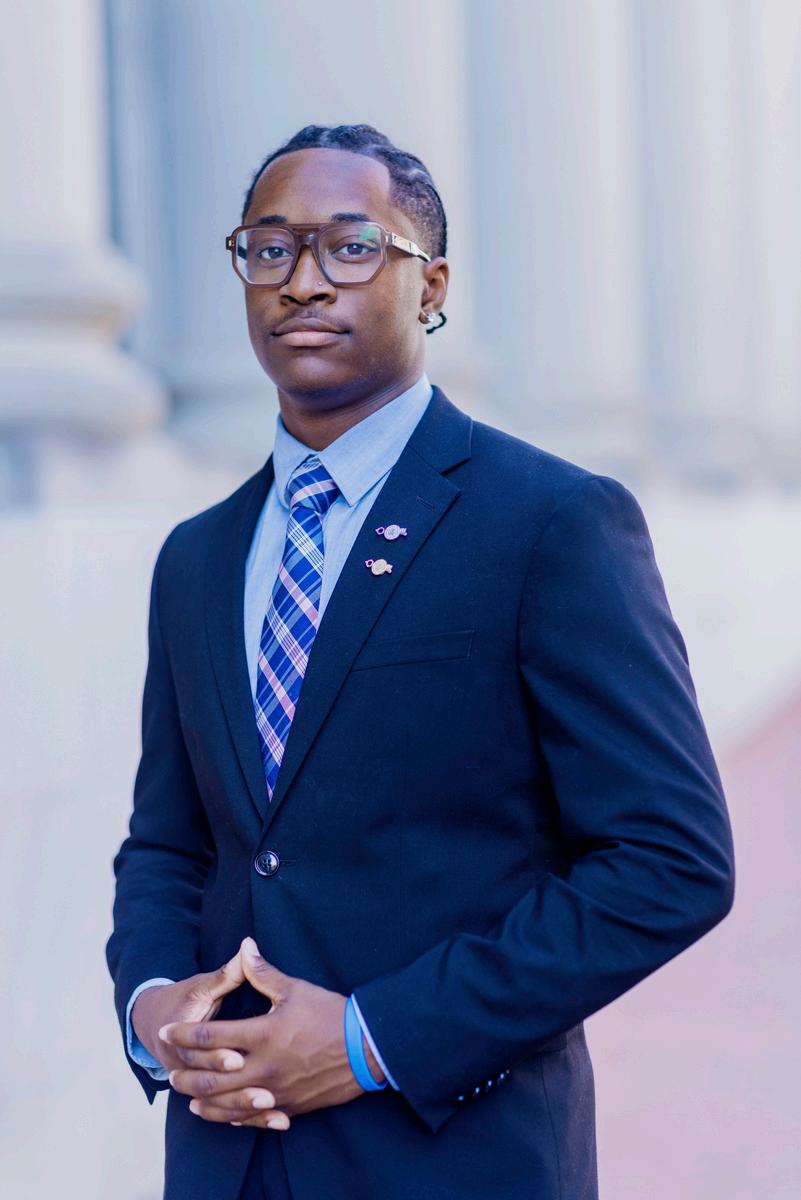
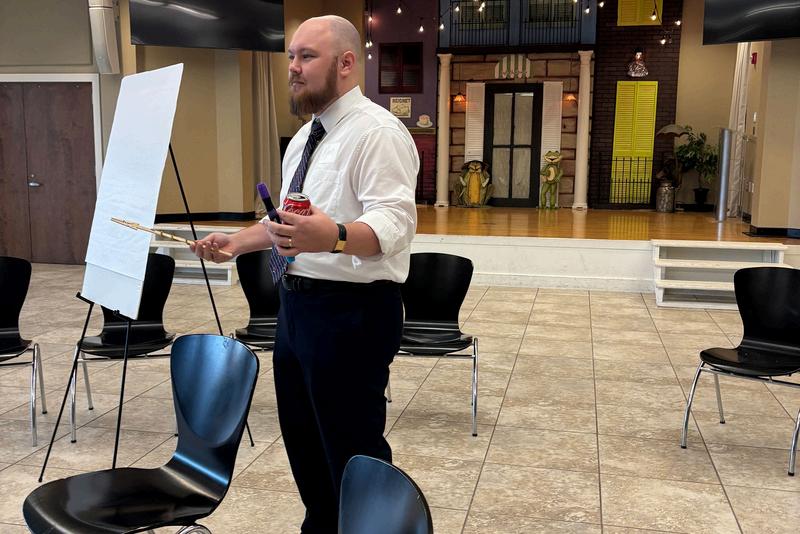
Solution Circle co-lead and former YMP student Ryan Perry is the associate director of chapter services for Sigma Nu Fraternity, Inc , in Mississippi
The Mississippi Youth Media Project provides a platform for high school students in the Jackson metro and surrounding areas to create high-quality multimedia journalism aimed at tackling equity-based issues within their communities. Students spend six weeks doing paid full-time work in the Mississippi Free Press newsroom. They learn about digital media, share their own stories, brainstorm, conduct interviews with government officials and community members, and create unique and important narratives. Through community engagement and solutionfocused journalism, students construct and write stories aimed at reframing the perception of youth involvement in media and the public sphere. Through a discussion-based approach and rigorous work environment, the Youth Media Project prepares students to go into an ever-evolving workforce. YMP aims to enhance the creativity of young people and connect them with a diverse group of students, staff, sources and community partners.
The 2024 YMP class thanks our sponsors for an amazing summer project!

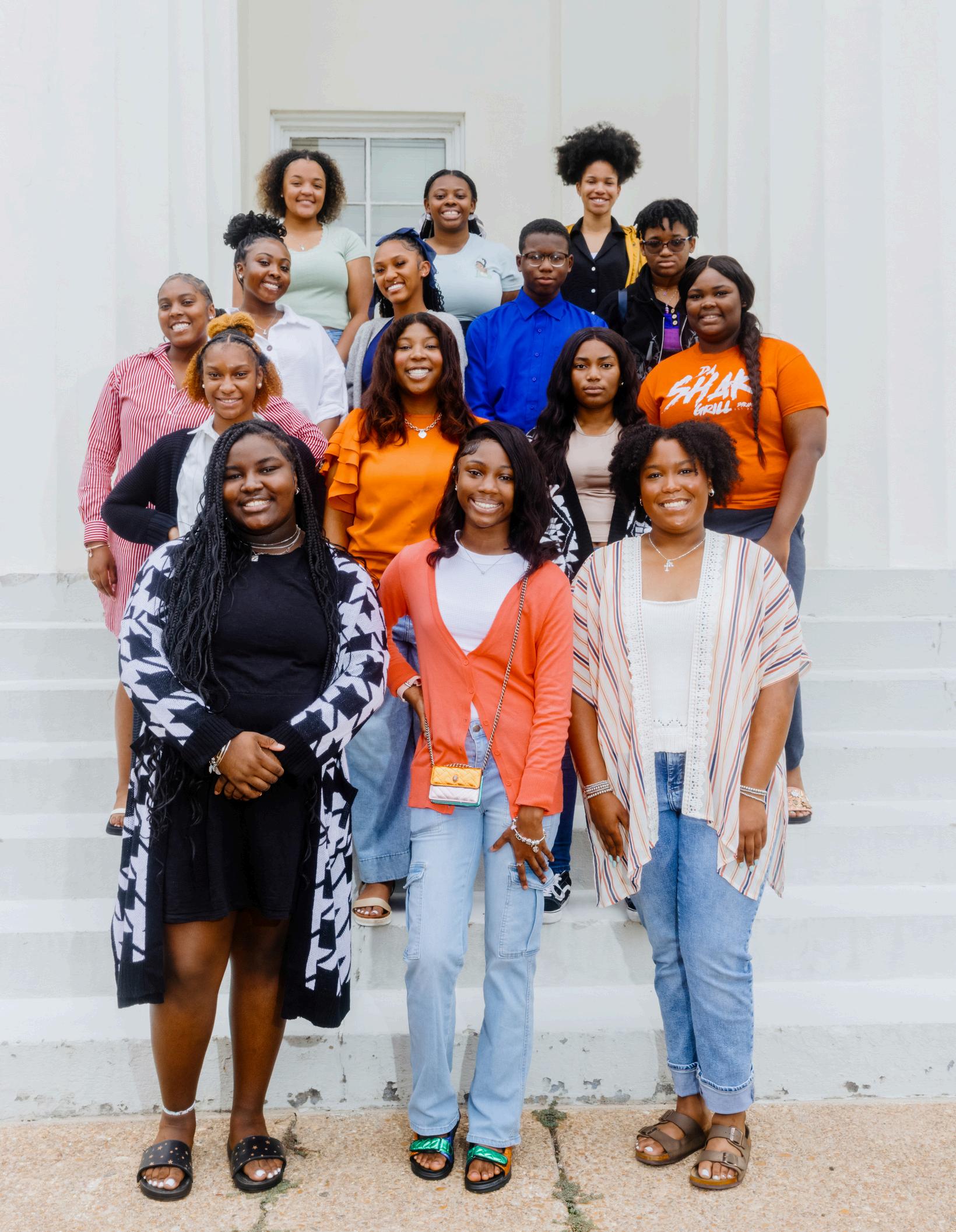

Thank you to the following organizations for providing student swag: W K Kellogg Foundation, Maynard Institute, News Revenue Hub, Report for America, Institute for Nonprofit News, Investigative Reporters and Editors Fahrenheit Creative, Canva, Associated Press, Wordpress, NewsPack
Students not pictured here: Paris Braggs, Braden Overby, Kaitlyn Poole